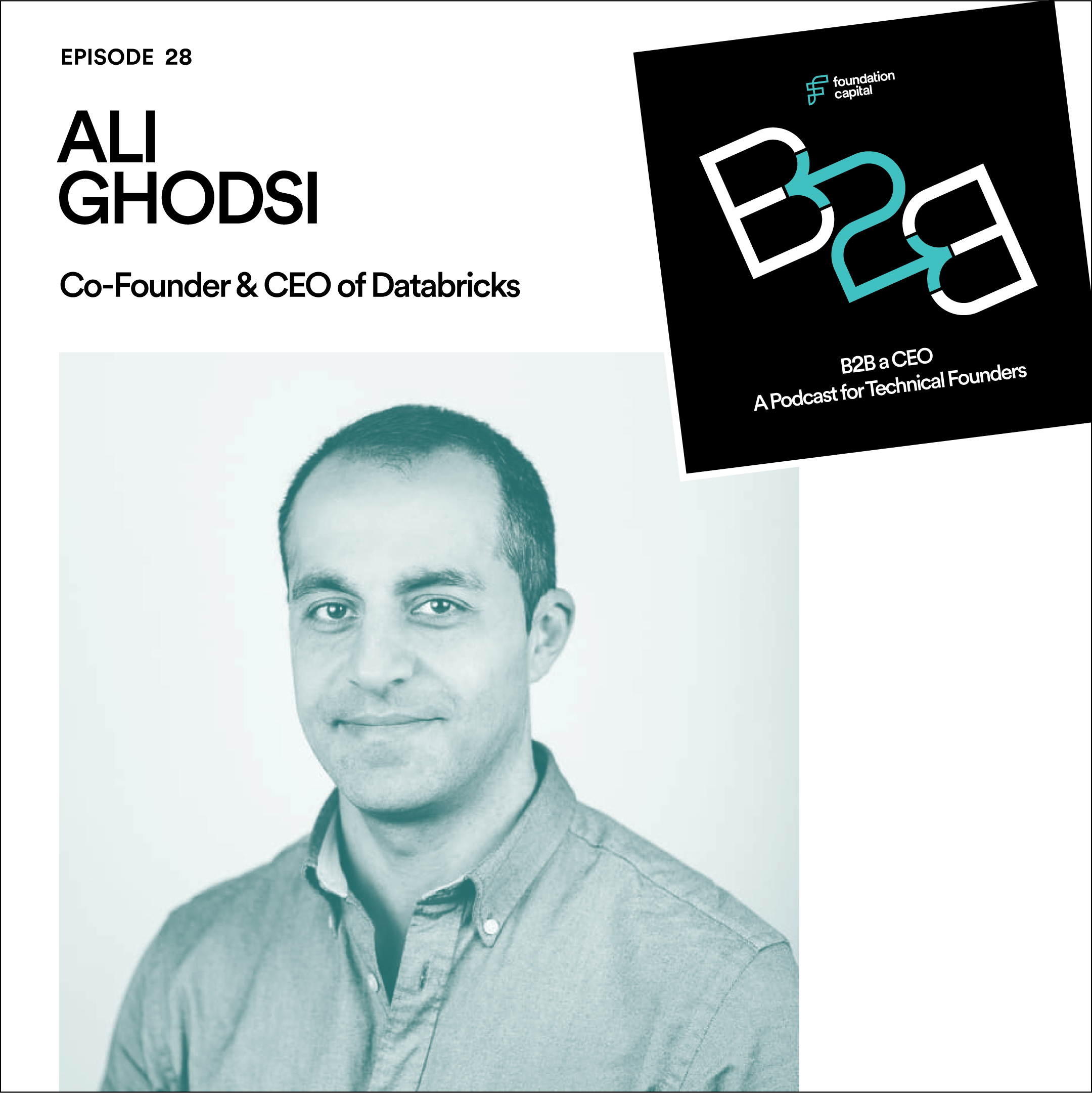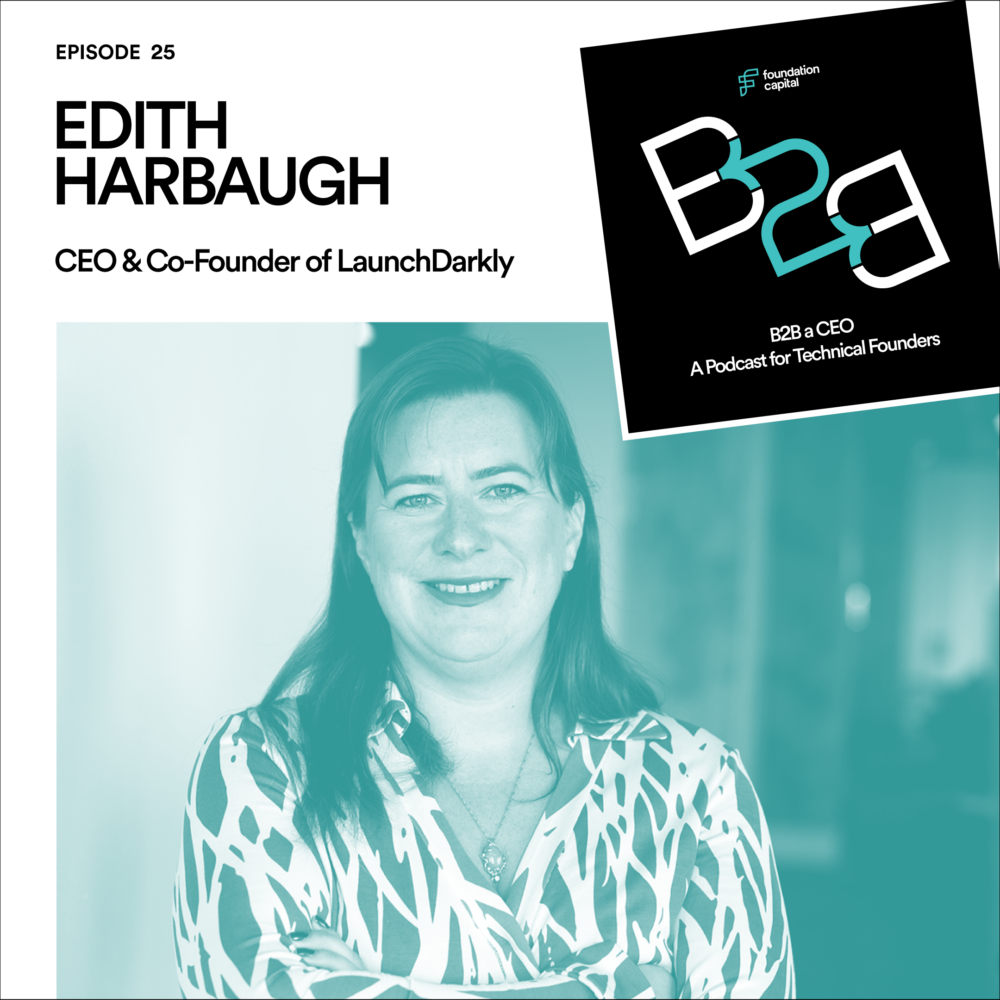Episode 27
How to Manage on the Edge of Chaos
With Reed Hastings, CEO and Co-Founder of Netflix
By Ashu Garg
02.19.21
This is a special episode of B2B a CEO. Last month, Foundation Capital held a special event for all of our CEOs. We hosted a conversation with Foundation’s most illustrious CEO, Reed Hastings, the CEO and cofounder of Netflix. General Partner Steve Vassallo and General Partner Emeritus Mike Schuh interviewed Reed about his new book, No Rules Rules. Reed discusses the evolution of Netflix, and what he’s learned over the decades about how to build a high-performance culture. He also shares a few stories from back in the day.
I. The Recap
For our first trick in 2021, Foundation Capital held a special event for all of our CEOs. We hosted a conversation with Foundation’s most illustrious CEO, Reed Hastings, the CEO and cofounder of Netflix. My partners Steve Vassallo and Mike Schuh interviewed Reed about his new book, No Rules Rules. Reed discusses the evolution of Netflix, and what he’s learned over the decades about how to build a high-performance culture.
Culture
Everyone knows talented people are the single most important ingredient for a successful company. And to recruit and retain great people, you need a great culture.
Reed works to maintain this environment in a few ways:
- Reed describes Netflix’s culture as similar to a professional sports team — You play for your position. This type of environment is not, and should not, be a family. It may be less comfortable, but the reward is the incredible joy you get from working with excellent people.
- The leader must demonstrate his or her commitment to excellence — For example, Reed once demanded that the board convince him that he was the best candidate for CEO. The organization is bigger than himself, and he wanted to be sure was truly the man for the job.
Feedback and Honesty
Excellence happens when everyone can share their opinions and perspectives.
This has several implications on the company’s feedback culture:
- Candor — Unfiltered feedback is important, but there will always be a tension between kindness and honesty. Feedback is painful, but like exercise, the part that hurts is what makes you stronger.
- The best discussions and feedback occur when all parties focus on excellence as their North Star — A team may disagree about how to proceed, but everyone ultimately has the same goal: betterment of the company.
Tactical Steps Toward Excellence
Tactically, Netflix promotes excellence in several ways:
- Reframe “work-life balance” as “work-life integration” — Work-life balance indicates a zero-sum game, while work-life integration implies that one need not impair the other. For example, in a move unheard of before 2020 (and certainly in a time before a robust internet), Reed and his family spent a year in Rome in the earlier days of Netflix. By alternating two-week periods in Los Gatos and overseas, he was able to commit himself to both the company and his family without sacrificing either.
- Fully vested stock options — Netflix eliminated stock vesting periods for their employees. Employees should stay at the company because they want to, not because they are waiting for a payday; by removing this incentive, the company saw a decrease in attrition and improvement in its culture of excellence.
- QBRs (Quarterly Business Reviews) — Netflix pairs its belief in employee autonomy with an intense focus on goal alignment. Teams are trusted to make decisions in the best interest of the company, but every quarter leaders at all levels meet to communicate about their progress, decisions, and plans.
The Organizational Ecosystem
Rather than viewing a company as a tightly controlled factory, Reed prefers to see it as an ecosystem:
- Especially in the business of content creation, variety is everything — You can’t put all your eggs in one basket. This is precisely why teams at Netflix do not adhere to a strict process or factory-like chain of production. Reed argues that the factory metaphor infects our thinking, by boxing an organization into a lab-like environment when it should be fostered as a fertile ecosystem.
- The ecosystem model requires the company to have both strong vision and a strong culture — With clarity of goals and a commitment to excellence, an ecosystem needs fewer rules than you may think.
Published on 02.19.21
Written by Ashu Garg


